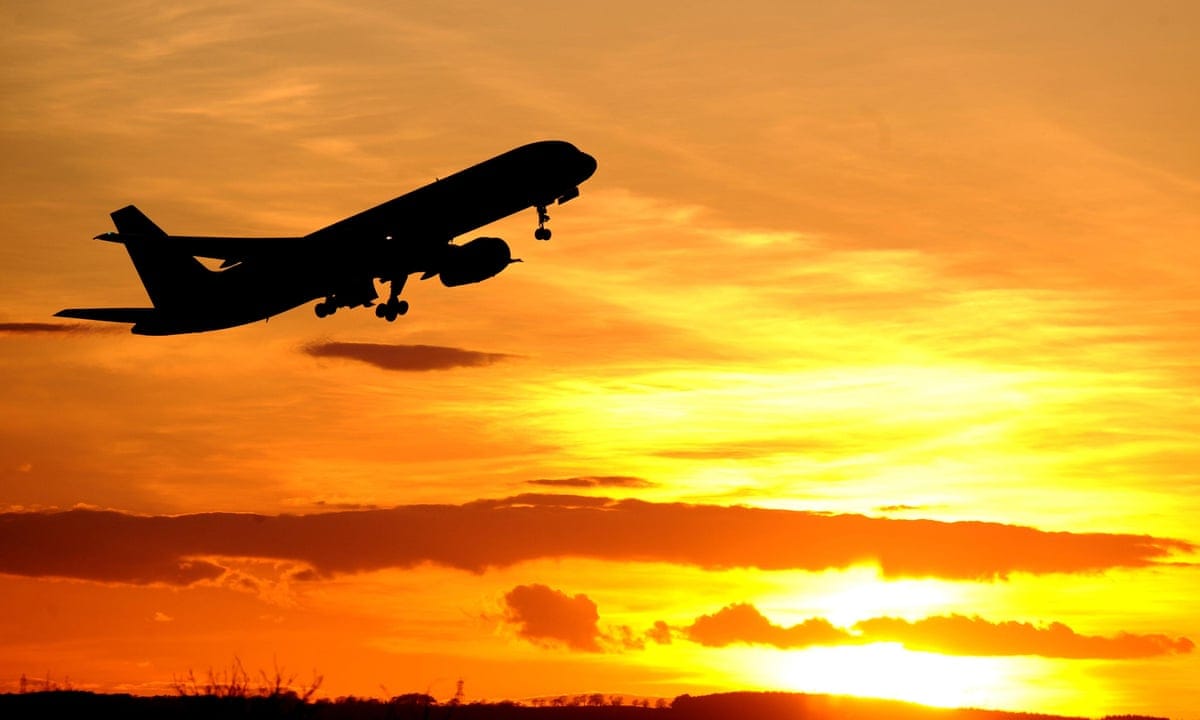"A European 'Frequent Flyer' Levy Could Cut Emissions and Raise €64bn Annually Without Additional Costs for Most Travelers," a report suggests. A proposed tax on excessive air travel within Europe could potentially decrease carbon emissions by 21% while raising significant funds, according to new research from the New Economics Foundation (NEF) in collaboration with other organizations.
The majority of benefits would accrue largely to just over half—53%, per analysis conducted for this study alongside campaign group Stay Grounded – which co-authored it — while around 72% could avoid these taxes by limiting their flights or eliminating them entirely.
The NEF report is a pioneering attempt to examine how such an approach might be implemented in Europe and posits that this would decrease passenger numbers within twelve months of implementation—by approximately 26%, per CE Delft's model calculations —and curtail related emissions by about one-fifth compared with projected levels without intervention.
A tiered levy system is suggested, starting at zero for the first return flight in a year and increasing €100 after each subsequent trip within that same period of time; longer distances would attract higher surcharges as well those using business class facilities or traveling abroad where EU's Emissions Trading Scheme (ETS) does not apply.
The feasibility assessment by legal consultancy AdaStone Law identified potential issues with displaying taxed prices due to data protection laws but found the proposal legally viable under existing European Union and national regulations — although it may require careful handling of privacy concerns for its successful implementation.
The levy' extraterritorial impact on Europe’s high-frequency fliers is expected to be significant: Only about a fifth (15%) of households earning less than €20k fly enough annually to pay the proposed tax—this figure rises sharply, reaching over two thirds (63%), for those with annual incomes above £100K.
Finlay Asher, an aviation engineer and co-founder of Safe Landing — a group advocating industry change aligned to climate science recommendations—stresses the importance: "Our love for flying must be balanced against its environmental impacts." He warns that without focusing on these frequent fliers who contribute disproportionately towards air travel's carbon footprint, our attempts at reducing emissions may fall short.
The EU faces a paradox; despite increasing aviation-related CO2 levels and heavy subsidies for jet fuel (which currently enjoys exemptions from both VAT and tax duties), the sector remains largely unregulated when it comes to environmental policies, notes The Guardian report: "Currently only about half of total flight emissions are factored into Europe's ETS."
Marlene Engelhorn—an Austrian heiress who plans donate upwards 90% her wealth — speaks for many others in urging them to curb their own contributions towards the world’s dwindling carbon budget. She states: "The 'jet set' is using an undeserved share of our resources while harming Mother Earth—it must end."
Despite promising avenues like synthetic fuels and electric planes, experts agree these solutions are not yet ready for widescale implementation due to technical challenges. In the meantime they urge reducing demand rather than relying solely on technology — suggesting that frequent fliers or those who can easily afford alternative means should consider them first before opting out of flying altogether when possible and shifting travel methods as much more sustainable alternatives are available."
The report concludes by not examining specific EU member states' potential to enact such a levy, citing difficulties in obtaining unanimous agreement on tax policies. It instead encourages smaller groups or alliances among willing countries — leaving the door open for further exploration of this idea under regional contexts where feasible:
“Those who fly more than once annually should be conscious that we represent a tiny fraction—about 20%-30%, with potential benefits accruing mainly to us, as Stay Grounded’ analysis indicates,” remarks Sola Zhang from the International Council on Clean Transportation — an aviation specialist reviewed early draft but not directly involved in crafting this report.
"Frequent flyers should take responsibility for their environmental impact—cut down or cease air travel, where feasible and instead opt out of it entirely if possible." For trips that remain essential they suggest: "Support the move towards zero-emission aviation as our second line of defense.”
Read next

Dominican Republic halts rescue efforts following devastating ceiling failure at nightclub incident
Rescue teams in the Dominican Republic on Wednesday concluded their search for survivors following a catastrophic nightclub roof collapse—this marks one of its most tragic disasters over recent years, with confirmed death toll rising beyond 180 individuals within this Caribbean nation.
Authorities announced an additional count of 60 fatalities

Angelica Huston Discloses Past Cancer Diagnosis; Now Fully Recuperated and Clear of Disease
Anjelica Huston disclosed her cancer diagnosis six years ago after the release of her 2019 film John Wick: Chapter 3 – Parabellum. The actress prefers not to divulge specific details about the type of cancer she faced but expressed pride in overcoming this serious health challenge, which required significant changes to

Royal Visit: King Charles and Queen Camilla Surprise Papal Counterpart at Recovery
The British monarch Charles and his consort Camilla paid an unexpected visit to Pope Francis during their four-day official trip across Italy.
They met with the pontiff at his residence within Casa Santa Marta inside Vatican City where he recovers from a severe lung infection caused by pneumonia, which had

